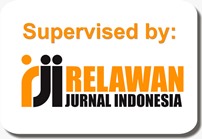TALENT MANAGEMENT MODEL ANALYSIS AT PT INDUSTRI KERETA API (PERSERO)
Abstract
The success of an organization in achieving its goals depends on the quality of the human resources working in it. The key role of human resource management (HRM) in an organization is inherently not only about managing but also finding ways to unlock the potential of creative and innovative people. Talents are the best employees, have competence, high performance, and superior performance, which are developed through career development, and are prepared to become future leaders that determine the company's sustainability. Talent management is the process of planning, mapping, and managing to build and retain talent based on performance assessments, competency measurements, and assessments used as talent indicators. This study aims to analyze the implementation of the talent management program and design appropriate talent management strategies and models at PT INKA (Persero). The research approach used in this study uses a qualitative approach to describe a condition and condition of talent management. This study's data collection used interviews, observation, and documentation studies. The results of this study indicate that PT INKA (Persero) has implemented talent management. However, in terms of implementation, talent management has not been considered effective and appropriate for PT INKA (Persero) because it does not yet have Key Performance Indicators and data related to the talent management system, so companies find it difficult to carry out supervision. The program strategy and talent management model at PT INKA (Persero) has not been fully implemented because they are still in the drafting stage and have not been outlined as a board of directors regulation. So its application is still inconsistent because each function of the talent management dimension still works independently, and there is no continuity between the dimensions of talent management.
Full Text:
PDFReferences
Brigman. 1995. Social Psychology. Second Edition. New York: Harper Collins Publishers Inc.
Budhwar, P. S., & Bhatnagar, J. 2007. Talent Management Strategy of Employee Engagement in Indian ITES Employees: The Key to Retention. Employee Relations.
Dessler, Gary. 2005. Manajemen Sumber Daya Manusia. Alih bahasa: Eli Tanya.
Penyunting Bahasa: Budi Supriyanto. Jakarta: Indeks.
Fadila, R., & Rezeki, F. (2023). Pengaruh Fleksibilitas Kerja, Kompensasi Dan Iklim Kerja Terhadap Kepuasan Kerja Driver Grabbike Cikarang Utara Kabupaten Bekasi. Jurnal Administrasi dan Manajemen, 13(2), 118-124.
Keputusan Menteri Badan Usaha Milik Negara Republik Indonesia Nomor SK-394/MBU/12/2021 Tentang Pedoman Pelaksanaan Asesmen Bagi Talenta Direksi BUMN Menteri Badan Usaha Milik Negara Republik Indonesia
Lexy J. Moleong, 2011. Metodologi Penelitian Kualitatif Edisi Revisi, Bandung: Remaja Rosdakarya, Hal. 4
Nawawi, H., 2003. Manajemen Sumber Daya Manusia Untuk Bisnis Yang Kompetitif, Cetakan ke-7, Gadjah Mada University Press, Yogyakarta.
Pella, Darmin Ahmad & Afifah Inayati. 2011. Talent management Mengembangkan SDM Untuk Mencapai Pertumbuhan dan Kinerja Prima. Jakarta: PT. Gramedia.
Rezeki, F., Mardiputera, H. M., & Wulandari, A. (2023). High and Low Levels of Employee Performance: The Role of Transformational Leadership Styles and Employee Engagement. Asian Journal of Management, Entrepreneurship and Social Science, 3(03), 568-584.
Rezeki, F. (2023). Work Attachment as Intervening Transformational Leadership and Work-Life Balance to Intention to Stay in Millennial Generation in Automotive Company. International Journal of Social Science and Business, 7(2), 476-482.
Haribowo, R., & Rezeki, F. (2023). The Influence Of Organizational Culture, Job Characteristics, And Transformational Leadership On Employee Engagement of PT. Texttile Indonesia. Asian Journal of Management, Entrepreneurship and Social Science, 3(01), 428-438.
Rofi’ah, Avira, S., Budiasih, Kurniasih, S., & Agustin. (2022). Penggunaan Manajemen Talenta pada Manajemen Sumber Daya Manusia Sebagai Strategi Organisasi. Jurnal Ilmiah MEA (Manajemen, Ekonomi, Dan Akuntansi), 6(1), 1791–1801.
Smilansky, J., 2008. Developing Executive Talent: Metode Efektif Untuk Mengidentifikasi dan Mengembangkan Pemimpin dalam Perusahaan. Jakarta: PPM Manajemen.
Undang-Undang Republik Indonesia Nomor 11 Tahun 2020 tentang Cipta Kerja
Wicaksana, Seta. A. et. Al. 2021. Manajemen Pengembangan Talenta. Cetakan pertama. Penerbit DD Publishing. Jakarta.
DOI: https://doi.org/10.31846/jae.v11i3.685
Refbacks
- There are currently no refbacks.

This work is licensed under a Creative Commons Attribution-NonCommercial-NoDerivatives 4.0 International License.
e-Jurnal Apresiasi Ekonnomi Indexed by:












